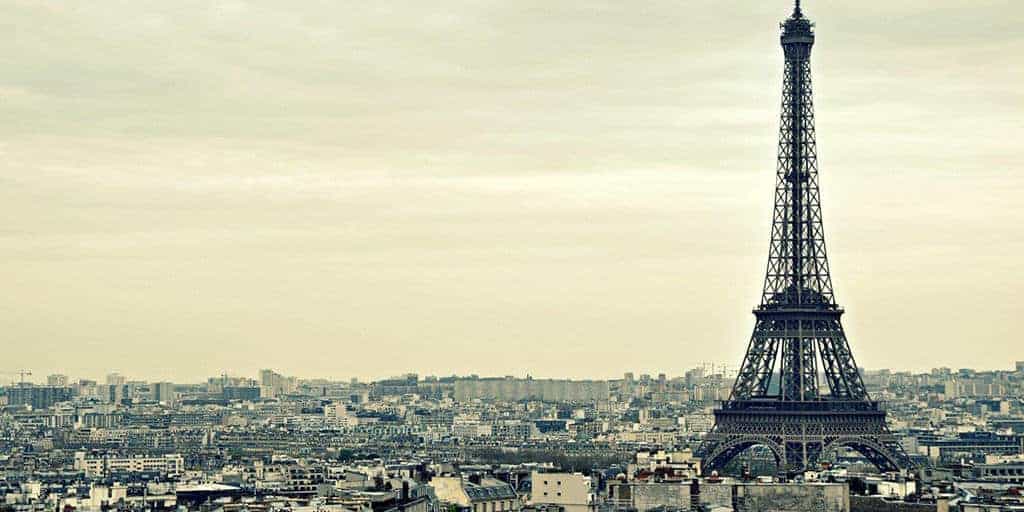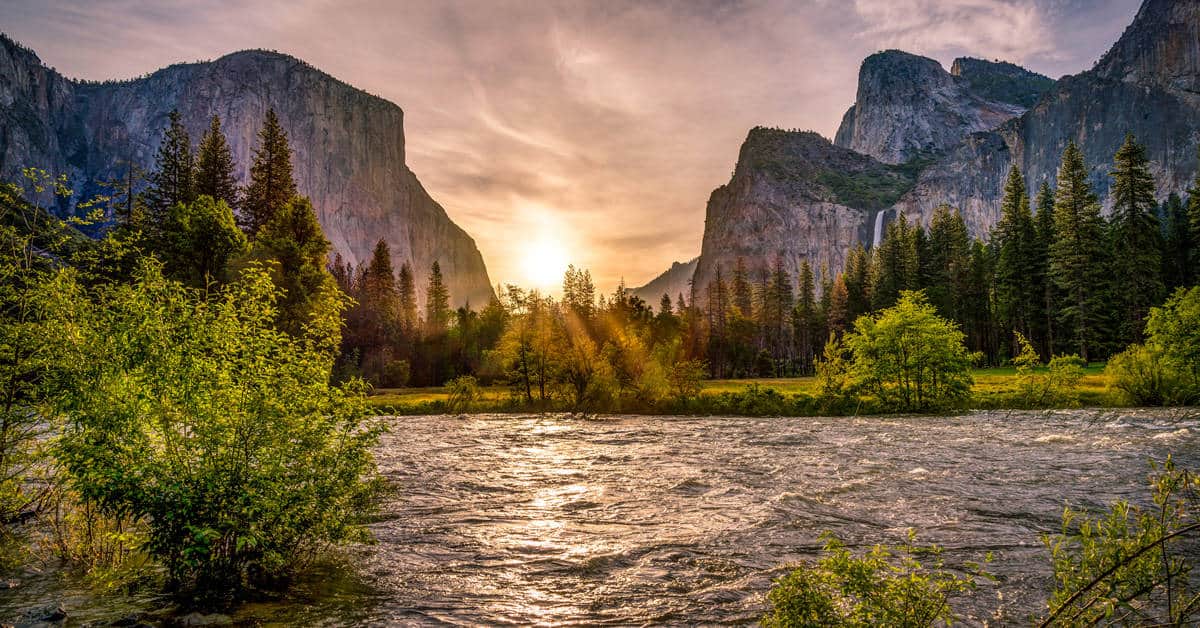 I wanted to throw the remote control through the TV screen when, after reading a list of the names of the children slaughtered at Sandy Hook Elementary School, President Obama Sunday night concluded, “God has called them home!”
I wanted to throw the remote control through the TV screen when, after reading a list of the names of the children slaughtered at Sandy Hook Elementary School, President Obama Sunday night concluded, “God has called them home!”
I realize it’s just something we say to comfort grieving parents with the image that they those who pass away have been called there by God, but the view of God it hangs on is no comfort at all. God did not call them home; evil sent them to his arms and he received them with sorrow over the way we humans continue to treat each other. It was not his will that any of them die that day. It takes a distorted view of God’s will to assign him choice in every atrocious event in our world, even if we just believe he “allowed it” in some benign way. It wasn’t his doing, but the actions of someone who had given themselves over to evil. Those children would still be alive today if he had not done so.
Why are we so easily soothed by the misguided notion that God is behind such things? What kind of God decides to call some children home and then enlists a murderer to do it for him? And why is that thought more comforting than the fact that God is in this world with us to help make sense out of a senseless world. Evil roams the earth and sometimes through willing vessels is able to cause incredible devastation. Why would we rather believe God is behind these things for whatever false comfort that provides?
I guess the dilemma is this: How can a loving Father leaves us to the whim of the most wicked among us? It is a question that has perplexed mankind throughout history. It seems so incredibly unfair that the selfish act of one person can rob so many others of life and property. Yet the Scriptures are full of evil acts destroying the innocent, from Cain slaying his brother in jealousy, to King David raping his friend’s wife then having him murdered by betrayal, and then Jesus himself consigned to a horrible death by those who would tell lies under oath. In far less brutal ways, all of us have been victims of others who have sought to impose their will on us by deceit, force, or simply taking advantage of us for their own gain.
We want a world were the negative actions of people don’t have consequence. We think God should prevent all bad things from happening, if not for everyone, then at least for those who are following him. But where does that leave you when tragedy strikes except to feel abandoned by God for some unknown offense? If tragedy is proof that God didn’t love you enough to protect you, how do you rely on him at life’s worst moments? God has not promised a world without evil, nor a life with out pain. He has promised to be with us and to work anything life hurls at his toward his ultimate good of redeeming us and the world back to himself.
We cannot escape the notion that human actions have consequence and when people act destructively others are destroyed. We want to credit everything to God’s hands when he put the world in ours. Humanity is not only capable of incredibly compassionate deeds, but incredibly horrifying ones as well. War, oppression, murder, rape, cheating, and stealing are a constant part of life because people choose to do those things and see other people only as fodder for their own wants.
I’ve heard it suggested that compassionate people will not hold others responsible for their actions at times like this. They suggest some don’t really have a choice because they are the product of an unhealthy environment, or aren’t in their right mind. And they believe their hurtful actions toward others won’t matter because God’s love will fix whatever wrong we do to others. I find such thinking not only an affront to God’s love and a flimsy excuse to treat others the way they want and think there are no consequences for doing so.
All of our actions have consequences that effect the people around us and the culture as a whole, for good or ill. They may not be as large as what happened in Connecticut last week, but, like ripples in a pond they do impact others. Because one man chose to grab a gun instead of seek out help for whatever tormented him, twenty-six people had their lives cut short. Mothers and fathers were robbed of beloved sons and daughters.
We are responsible for our actions and the consequences they cause others. While God forgives people their failures as a way to open the door to know him again, it does not change the consequences their hurtful actions have caused others. Any caring person, would not see their own forgiveness as healing enough, but would also want to be part of healing any wounds they’ve caused others. That’s what separates light from darkness.
Evil thrives in the dark, seeking excuses not healing. It has no empathy for others and therefore sees no problem with satisfying its rage by shooting little children. It attacks people at their most vulnerable, often luring them in by false trust, only looking to take advantage of their goodness. Every con artist first presents himself as a trustworthy person before he seeks to take as his own that which is not his. Evil always abuses the trust of well-meaning people and uses it as a weapon against them. It is the complete antithesis of love, which is why God hates evil—not the person, but the actions and motivations that act so destructively.
Evil lurks in the dark to play the coward’s game. That’s why it seeks out a classroom of first-grade children with a gun, where no one can match his firepower, or unarmed citizens at a political rally. These people don’t attack army bases or police stations. This one chose the most vulnerable environment and by doing so betray the trust of a culture that killing innocent children is completely unthinkable. Of course, we have no idea how many intended acts of evil get thwarted by God’s intervention, but we know it is not all of them. I realize that sounds more insecure than the idea that nothing can happen to us God does not allow, but I am not comfortable with the terminology that God would allow such horror.
Is he powerless to stop some things? Of course not, but he has a larger plan unfolding that we can possibly understand in this age. Scripture is clear that God takes up the cause of the widow and orphan, the marginalized, and the oppressed. He will vindicate them and in justice deal with those who are agents of destruction. But only a cursory view of life tells us that rarely happens this side of eternity. What vindication replaces the loss of a child or the wounds of abuse? But we are also assured that this life only makes sense in light of what comes next and we’ll take a look at that more in my next installment.
The character of God in this age need not be compromised to gloss over the actions of evil, or to falsely comfort those in pain. God’s character is seen in the in the actions of those who protect the vulnerable, not seek to destroy them. It’s reflected in the staff members who confronted the gunman and paid with their lives. He has already done that for us by suffering the injustice of this world to begin the process that would reverse sin in the race and overcome evil.
That process still unfolds. Though evil causes ripples through our culture so do acts of grace and kindness. When you smile at a stranger, help someone in need, feed those who have no food, confront injustice on someone else’s behalf, and care for others over your own desires, the world changes a little. Start today with the people you know. How can I show them acts of kindness reveals God’s love in our world, and not use them for what I think I need?
And just because he does not prevent things like this from happening is no reason to give ourselves over to fear. Fortunately evil like this is incredibly rare. Schools don’t get shot up every day for there are very few people as wantonly destructive as that young man. One of the things our media does poorly is give us a sense of proportion about tragedies when they happen. Wall-to-wall coverage in a nation of over 300 million people, makes it seem like it’s happening around the corner and soon people begin to fear sending their own kids to school.
And when we find ourselves in a crisis of any size, we can rest secure knowing that he will not abandon us there. We are safe in him regardless of what comes our way and he will fulfill his purpose in us and the world even beyond the works of evil. If you need guarantees to trust him, you haven’t yet learned to trust him. For trust sets you at rest even in uncertainty, knowing that no harm can befall you that is bigger than him.
I would much prefer a God who is with me in every trial as his larger purpose unfolds, rather than cling to a false comfort that he will surely prevent everything bad from coming my way. We are safer walking the waves with him than we are staying in an empty boat with out him.
His ripples are the biggest ones in this pond!








Totally love this Wayne, thank you so much!
Totally love this Wayne, thank you so much!
Thank you for helping to correct such distorted views of our wonderful Lord!
Thank you for helping to correct such distorted views of our wonderful Lord!
We weep and, naturally, we look for answers. We turn to our Father, because that’s what we’ve learned to do in trials. And when we do, we can’t help but ask Him, “if you can do something, why don’t you?” And we think of being protected under the shadow of His wing and think, “well, surely children would be protected” but then this happens.
Regardless of how well we think we know Him, we wrestle and come up empty handed.
I’ve been through ugly stuff. And I have felt the presence and peace of Father in a way that went way beyond understanding. And it sometimes felt like it was enough, but barely enough. So I think about those parents and I hope with all my heart that they will cling to him because there is sufficient peace in Him. But I know that it will be so easy to blame him for not doing something and I can’t imagine the darkness of that place. I fear and weep for those parents that end up in that place and I plead that Father will rescue them from that.
When someone says “Why didn’t God prevent … from happening”, I feel like asking them how they would like it if God prevented them from doing anything He didn’t like. How would you feel if your voice quit working every time you tried to gossip? Or your feet would freeze up when you tried to go somewhere that wasn’t good for your? Let’s face it — God gave us freedom of choice. Do you really want God to prevent you from doing what you want? To me it’s totally amazing that He gives us the choice and the freedom, yet still loves us unconditionally when we choose poorly.
“Because one man chose to grab a gun instead of seek out help for whatever tormented him, twenty-six people had their lives cut short. Mothers and fathers were robbed of beloved sons and daughters.” Just wanted to add… sons and daughters were also robbed of there parents. Both so incredibly tragic. Wayne, thank you for taking the time to share your thoughts. God has used you as an incredible instrument in helping my husband and I sort out our journeys and untangle relationship from religion. You have clarified many distorted views of God that we both grew up with. This has had a ripple affect to our 5 children and many others we come in contact with on a regular basis.
We weep and, naturally, we look for answers. We turn to our Father, because that’s what we’ve learned to do in trials. And when we do, we can’t help but ask Him, “if you can do something, why don’t you?” And we think of being protected under the shadow of His wing and think, “well, surely children would be protected” but then this happens.
Regardless of how well we think we know Him, we wrestle and come up empty handed.
I’ve been through ugly stuff. And I have felt the presence and peace of Father in a way that went way beyond understanding. And it sometimes felt like it was enough, but barely enough. So I think about those parents and I hope with all my heart that they will cling to him because there is sufficient peace in Him. But I know that it will be so easy to blame him for not doing something and I can’t imagine the darkness of that place. I fear and weep for those parents that end up in that place and I plead that Father will rescue them from that.
When someone says “Why didn’t God prevent … from happening”, I feel like asking them how they would like it if God prevented them from doing anything He didn’t like. How would you feel if your voice quit working every time you tried to gossip? Or your feet would freeze up when you tried to go somewhere that wasn’t good for your? Let’s face it — God gave us freedom of choice. Do you really want God to prevent you from doing what you want? To me it’s totally amazing that He gives us the choice and the freedom, yet still loves us unconditionally when we choose poorly.
“Because one man chose to grab a gun instead of seek out help for whatever tormented him, twenty-six people had their lives cut short. Mothers and fathers were robbed of beloved sons and daughters.” Just wanted to add… sons and daughters were also robbed of there parents. Both so incredibly tragic. Wayne, thank you for taking the time to share your thoughts. God has used you as an incredible instrument in helping my husband and I sort out our journeys and untangle relationship from religion. You have clarified many distorted views of God that we both grew up with. This has had a ripple affect to our 5 children and many others we come in contact with on a regular basis.
Love what you share here, Wayne. Once again, you just nail it in identifying the destructive ways in which religion distorts God and leaves us looking like complete idiots too. Especially when we just numbly nod our affirmation to statements like the “God has called them home” sort of comments. I know the President meant well but truth be told, those sort of statements just piss me off more than anything. Oops. I used a bad word didn’t I? See what I mean…this stuff just brings it out of me. Looking forward to part 3.
Love what you share here, Wayne. Once again, you just nail it in identifying the destructive ways in which religion distorts God and leaves us looking like complete idiots too. Especially when we just numbly nod our affirmation to statements like the “God has called them home” sort of comments. I know the President meant well but truth be told, those sort of statements just piss me off more than anything. Oops. I used a bad word didn’t I? See what I mean…this stuff just brings it out of me. Looking forward to part 3.
Hi Wayne,
I appreciate your thoughts (and feelings) here. Situations like these are so terrifying that it can be tempting to give oneself over to the idea that God must be pulling the strings. And maybe the most ironic result of that belief is that if God is in charge, we can really do nothing about it: who are we to resist God?
So in the end then, far from rekindling hope or even giving fuller expression to our grief, at best this view results in complacency. At worst, I reckon it results in despair.
Complacency because it seems to me that this view has more in common with Buddhism than Christianity: it takes what is evil and “sanctifies” it by ascribing it to God. So should we feel sad or even upset about this, if it is God’s will? Or is the message perhaps that our grief and rage are really misplaced—the result of being too limited (or if you theology is more heavy-handed, too sinful) to understand that this is all for some “greater good.”
Despair because, faced with this perspective, we must necessarily understand ourselves as insignificant—helpless before the whims of God. For a god who “calls home” little children in this manner, like a maleficent version of Zeus, is certainly a fearful entity indeed. Given this picture of God, is it any wonder that so much of evangelical Christianity seems based on fear and rule-following rather than on love and truth?
In fact, Obama’s view removes from us the very substance that the Psalmist would have us rely upon, both in coming to embrace God and as that which fosters and furthers right relationship with God: the created order, within which we are called to “taste and see” God’s goodness.
I agree that this situation presents no goodness—it is not something “according to which” I believe in God but something “despite which” I still believe. But neither is this a situation where Christians should encourage either complacency or despair. Rather, I think the first step is to recognize that the problem of evil is not simply an issue or even a big issue. To my mind it is the issue.
And if my personal experience with evil is any guide, the second step is for Christians to stand against it and—in evil’s overwhelming shadow—to tell our tales of how God has acted in our lives to heal and mend us. And this, I think, is where goodness can possibly be found amid evil: not that God solves our issues or addresses all our concerns, but that in place of evil God offers Godself. Not through the historical work of Christ or theological explanation, important as these are. But rather as acts within our everyday existence that convince our minds, inspire our imaginations, and win our hearts—acts of knowing us more truly than we know ourselves and loving us more deeply than we love ourselves.
Hi Wayne,
I appreciate your thoughts (and feelings) here. Situations like these are so terrifying that it can be tempting to give oneself over to the idea that God must be pulling the strings. And maybe the most ironic result of that belief is that if God is in charge, we can really do nothing about it: who are we to resist God?
So in the end then, far from rekindling hope or even giving fuller expression to our grief, at best this view results in complacency. At worst, I reckon it results in despair.
Complacency because it seems to me that this view has more in common with Buddhism than Christianity: it takes what is evil and “sanctifies” it by ascribing it to God. So should we feel sad or even upset about this, if it is God’s will? Or is the message perhaps that our grief and rage are really misplaced—the result of being too limited (or if you theology is more heavy-handed, too sinful) to understand that this is all for some “greater good.”
Despair because, faced with this perspective, we must necessarily understand ourselves as insignificant—helpless before the whims of God. For a god who “calls home” little children in this manner, like a maleficent version of Zeus, is certainly a fearful entity indeed. Given this picture of God, is it any wonder that so much of evangelical Christianity seems based on fear and rule-following rather than on love and truth?
In fact, Obama’s view removes from us the very substance that the Psalmist would have us rely upon, both in coming to embrace God and as that which fosters and furthers right relationship with God: the created order, within which we are called to “taste and see” God’s goodness.
I agree that this situation presents no goodness—it is not something “according to which” I believe in God but something “despite which” I still believe. But neither is this a situation where Christians should encourage either complacency or despair. Rather, I think the first step is to recognize that the problem of evil is not simply an issue or even a big issue. To my mind it is the issue.
And if my personal experience with evil is any guide, the second step is for Christians to stand against it and—in evil’s overwhelming shadow—to tell our tales of how God has acted in our lives to heal and mend us. And this, I think, is where goodness can possibly be found amid evil: not that God solves our issues or addresses all our concerns, but that in place of evil God offers Godself. Not through the historical work of Christ or theological explanation, important as these are. But rather as acts within our everyday existence that convince our minds, inspire our imaginations, and win our hearts—acts of knowing us more truly than we know ourselves and loving us more deeply than we love ourselves.
I highly recommend the book by C.S. Lewis, “The Problem of Pain.” Possibly the best treatment of reconciling the existence of evil and suffering in the world with a loving God.
I highly recommend the book by C.S. Lewis, “The Problem of Pain.” Possibly the best treatment of reconciling the existence of evil and suffering in the world with a loving God.
Greg Boyd’s book, “Is God to Blame” takes C.S. Lewis’ thesis in “The Problem of Pain” even further. the best theodicy I know of that is user-friendly
Greg Boyd’s book, “Is God to Blame” takes C.S. Lewis’ thesis in “The Problem of Pain” even further. the best theodicy I know of that is user-friendly